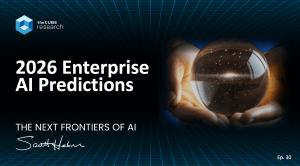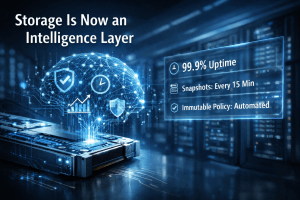The News
Databricks has agreed to acquire Neon, a developer-first, serverless Postgres company. The acquisition brings to Databricks a world-class team of database architects known for reimagining Postgres with a serverless architecture that separates storage and computing. As AI-native applications surge, Neon’s platform already sees over 80% of new database creations initiated by AI agents rather than humans—a trend Databricks plans to accelerate.
Analysis
AI systems are increasingly autonomous, data-hungry, and ephemeral—an environment ill-suited to traditional infrastructure. Neon’s serverless Postgres solves a critical bottleneck in AI application design, enabling real-time provisioning, isolation, and experimentation at scale. By acquiring Neon, Databricks positions itself at the heart of this emerging infrastructure layer. For platform teams, this acquisition delivers a performant, developer-friendly relational database that is AI-ready out of the box. For the AI-native future, it could prove indispensable.
AI Agents Are the New Developers
The acquisition underscores a dramatic shift: AI agents are becoming primary actors in cloud-native architectures. Neon’s observation that AI agents created 80% of new databases highlights the machine-speed nature of modern application stacks. Traditional Postgres was never built for this reality, but Neon’s serverless rearchitecture offers:
- Instant provisioning to support AI’s real-time demands
- Forking and branching to experiment across agent “vibes”
- Elastic cost models to support millions of short-lived, autonomous databases
This matches McKinsey’s prediction that over 30% of enterprise workloads will be agent-driven by 2028. With Neon, Databricks gains a key asset in powering AI-native development platforms.
Decoupled Storage and Compute: Built for Scale
Neon’s architecture enables rapid spin-up of thousands or even millions of isolated Postgres instances. This is made possible by:
- Separation of storage and compute, enabling stateless, ephemeral compute layers
- Postgres compatibility, allowing immediate developer onboarding and LLM interoperability
In an AI-native future where microservices, ephemeral agents, and data-centric pipelines dominate, serverless Postgres becomes a foundational layer. According to industry analysts, 72% of cloud-native developers prefer managed serverless data services due to Neon’s platform’s faster provisioning and cost control capabilities.
Strategic Fit with Databricks’ AI and Lakehouse Vision
Databricks’ acquisition of MosaicML in 2023 extended its platform toward model training and foundation AI. Now, with Neon, it solidifies its data infrastructure story by integrating OLTP-ready, serverless relational capabilities. This creates a full-stack AI development environment:
- Neon for transactional workloads
- Delta Lake for analytical pipelines
- MosaicML for model training
Together, this stack aligns with Databricks’ lakehouse vision, where structured, unstructured, and semi-structured data can flow seamlessly between development, experimentation, and production.
Neon’s Unique Edge for AI Workflows
Neon’s branching and forking capabilities are especially valuable for AI. These features allow agents to:
- Clone a full working dataset for safe experimentation
- Backtrack and retry paths in multivariate execution trees
- Validate hypotheses or “vibes” across multiple contexts in parallel
This enables safer, cheaper, and more auditable agent execution pipelines. As analysts anticipate that generative AI workloads will require new observability, traceability, and rollback mechanisms, Neon’s architecture is uniquely positioned to serve these needs.
Looking Ahead
With Neon, Databricks will be equipped to support AI-native developers building at massive concurrency and scale. Expect Databricks to integrate Neon into Unity Catalog, bring Postgres-native analytics into the lakehouse, and expand serverless developer experiences across cloud platforms.
As AI agents become commonplace, serverless databases that support rapid spin-up, high-fidelity forking, and elastic pricing will underpin the backend of the modern AI stack. Databricks now owns one of the most promising architectures purpose-built for that future.



